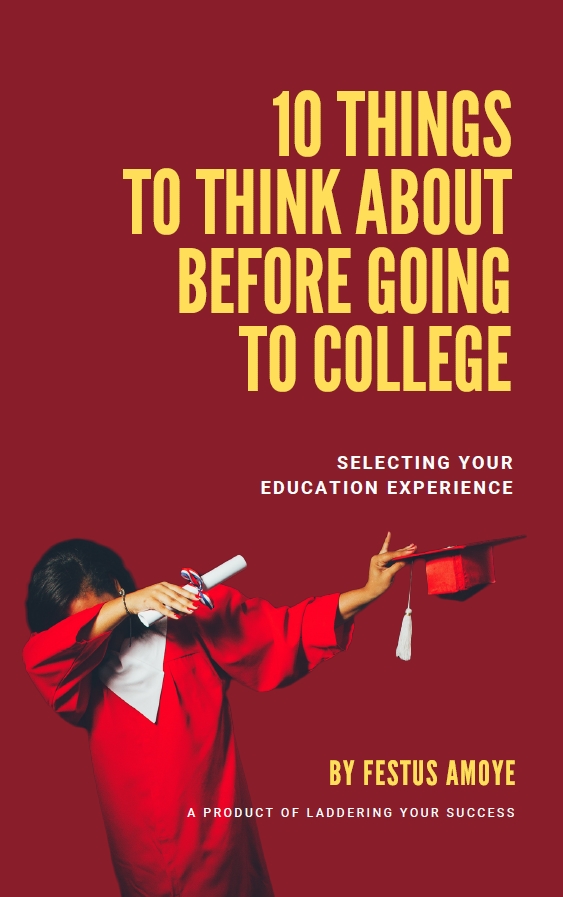Black people should not go to college.
I know that sounds crazy, but that was the prevailing thought until the late 1950s to 1960s which is why historically black colleges and universities exist. Before the Civil War, there was no structured institutional higher education system for black students. Also, history tells us that before emancipation, several states made laws against black people receiving an education, let alone reading. So, whether by public policy or some local statutory provision prohibited the education of blacks in various parts of the nation. According to the Department of Education, “the Institute for Colored Youth, the first higher education institution for blacks, was founded in Cheyney, Pennsylvania, in 1837. It was followed by two other black institutions–Lincoln University, in Pennsylvania (1854), and Wilberforce University, in Ohio (1856).” One can say that “We should close or stop HBCU’s”, is simply rephrasing “blacks shouldn’t go to college”. But why are people asking if black people should go to college today? Keep reading, and we will explore three main objections and provide three solutions.
Historically black colleges and universities (HBCUs) were established to serve the educational needs of Black Americans. Before their establishment, and for many decades afterward, blacks were generally denied admission to traditionally white higher education institutions. As a result, HBCUs became the principal means for providing postsecondary education to black Americans. So much so, President George Bush Sr. is quoted speaking of HBCUs saying, “At a time when many schools barred their doors to black Americans, these colleges offered the best, and often the only, opportunity for a higher education.”
Objection 1: Student loan debt
Research shows that black students tend to carry more student loan debt upon graduation from college. A report by the trellis Foundation shares this insight, “there’s an alarming relationship between degree attainment and larger amounts of debt for Black students.” The American Council on Education (ACE) found that about 30 percent of all 2015–16 bachelor’s degree recipients graduated without debt, but only 14 percent of African American graduates could say the same. The average debt of Black graduates is around $34,000, which is higher than any other racial or ethnic group. Those said blacks shouldn’t be picking up any more debt.
Solution:
While debt does occur at higher rates, HBCUs tend to have lower tuition rates while simultaneously graduating more black professionals that in turn earn higher wages. While graduation rates overall remain low, somewhere around 35%, keep in mind that this number is roughly 12-30% lower than average. This means that there is some likelihood that a student that attends an HBCU may graduate with less debt and have the potential for a higher income to pay off any debt obtained.
If you are looking for more scholarship opportunities, check out our eBook.
Objection 2: They offer poor quality of education
Many HBCU protagonists tend to point to troubling situations such as TSU’s historical academics as a reason why students should not attend these institutions.
Solution:
These institutions assist where other students may be barred from obtaining higher education. The Sweatt v. Painter, 1950 court decision stated that States must provide facilities of comparable quality for black and white students. Because of that, black students increasingly were admitted to traditionally white graduate and professional schools if their program of study was unavailable at HBCUs. In effect, offering opportunities for desegregation in higher education at the post-baccalaureate level. So, if these institutions were not available then today, we would have far fewer black professionals on the whole. Today, HBCUs are responsible for a quarter of African American STEM Graduates. According to the United Negro College Fund, HBCUs are responsible for 25% of all African-American science, technology, engineering, and mathematics degrees.
Objection 3: Segregation
Although HBCUs began to try to close the education gap created by hundreds of years of forced inferiority, they serve many other races and ethnic communities today. Roughly 25% of HBCU students do not identify as black. This indicates that HBCUs significantly impact the over two million students that enroll through higher education every year.
With COVID-19 negativity impacting all higher education institutions, HBCUs are among the most needed. When considering the needs of minority students, it is paramount to understand the role of HBCUs in assisting in cultivating the education of black students. As we look towards emerging from COVID, we need an educated population with the critical thinking, expertise, and knowledge to assist vulnerable citizens towards stability. If we supported HBCUs, we might reduce the inequalities in education while creating some equity.
In summary
In short, maybe black people should not go to college in the same way as other students do, giving attention to the needs within their communities. Finding the right education option or fit is critical. All students deserve quality education but not all students should go to college right away. There are various considerations each student should consider before enrollment. HBCUs award 40 percent of baccalaureate degrees earned by black college students. Since they graduate black students at a higher rate, then they deserve our collective support and attention.









